Patience is the key quality needed to keep ants as pets, says Nguyen Tan Minh Nhut, who takes careful care of seven species of the crawlers.
The Saigon resident’s curiosity and fascination with ants began after he caught a queen ant three years ago. The queen ant attracted over 100 worker ants to form a colony, and Nhut was hooked.
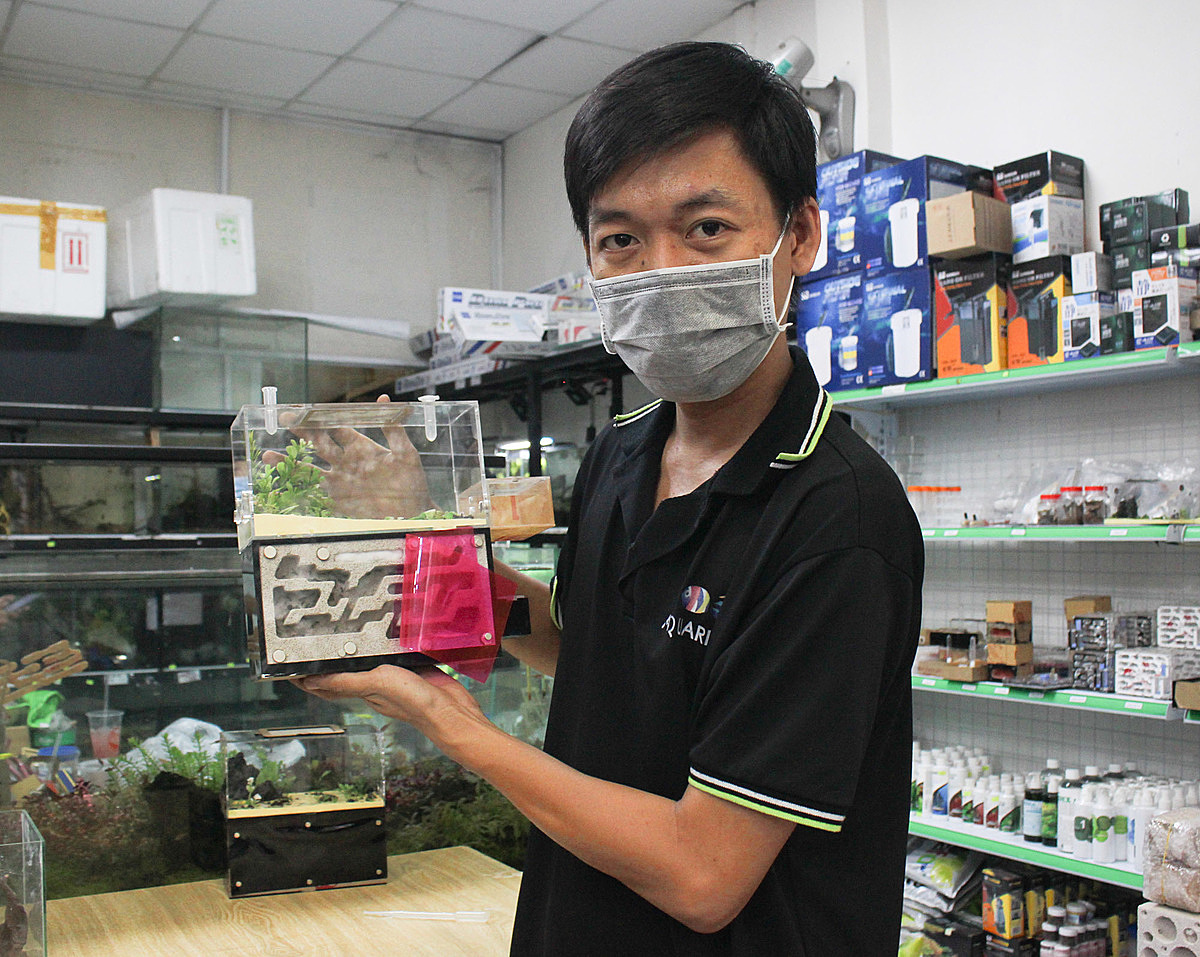 |
|
Ant keeper Nguyen Tan Minh Nhut, 30, shows off an ant tank at his aquatic product shop in HCMC’s District 6.
He owns an aquatic products shop on An Duong Vuong Street in District 6. A nature lover, he is constantly learning about various animals and ants have become a passion. In August 2019, he discovered an ant nest in a tree and brought it to his shop to see if it can self-reproduce. Then he learnt that antkeeping was a hobby catching on in many countries, including Vietnam. “So I began tinkering with making ant tanks,” he said, adding he was raising seven species of ants now.
|
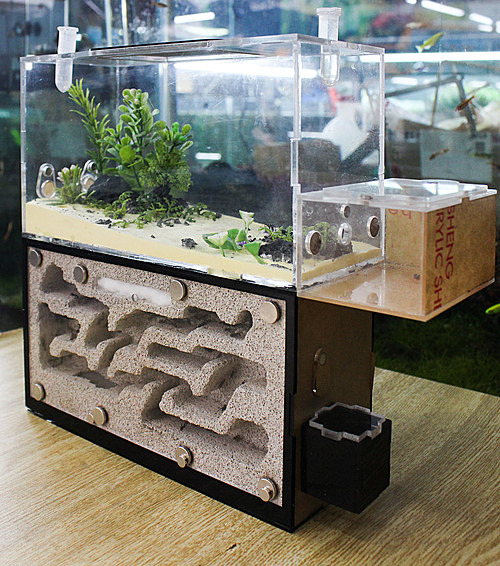 |
|
An ant tank is divided into two parts. The bottom compartment is the ant nest, which is made of a certain type of construction cement. Its top part simulates an ant’s hunting space and is surrounded by transparent layers of mica.
On the side, there are two small drawers. The lower drawer is where ants discard garbage and leftover food, and the upper drawer is where food is stored.
A standard tank must have no open space that will allow ants to escape or ants from outside entering and destroying a farmed ant colony. To allow for ventilation, the tank cap is made of mesh.
|
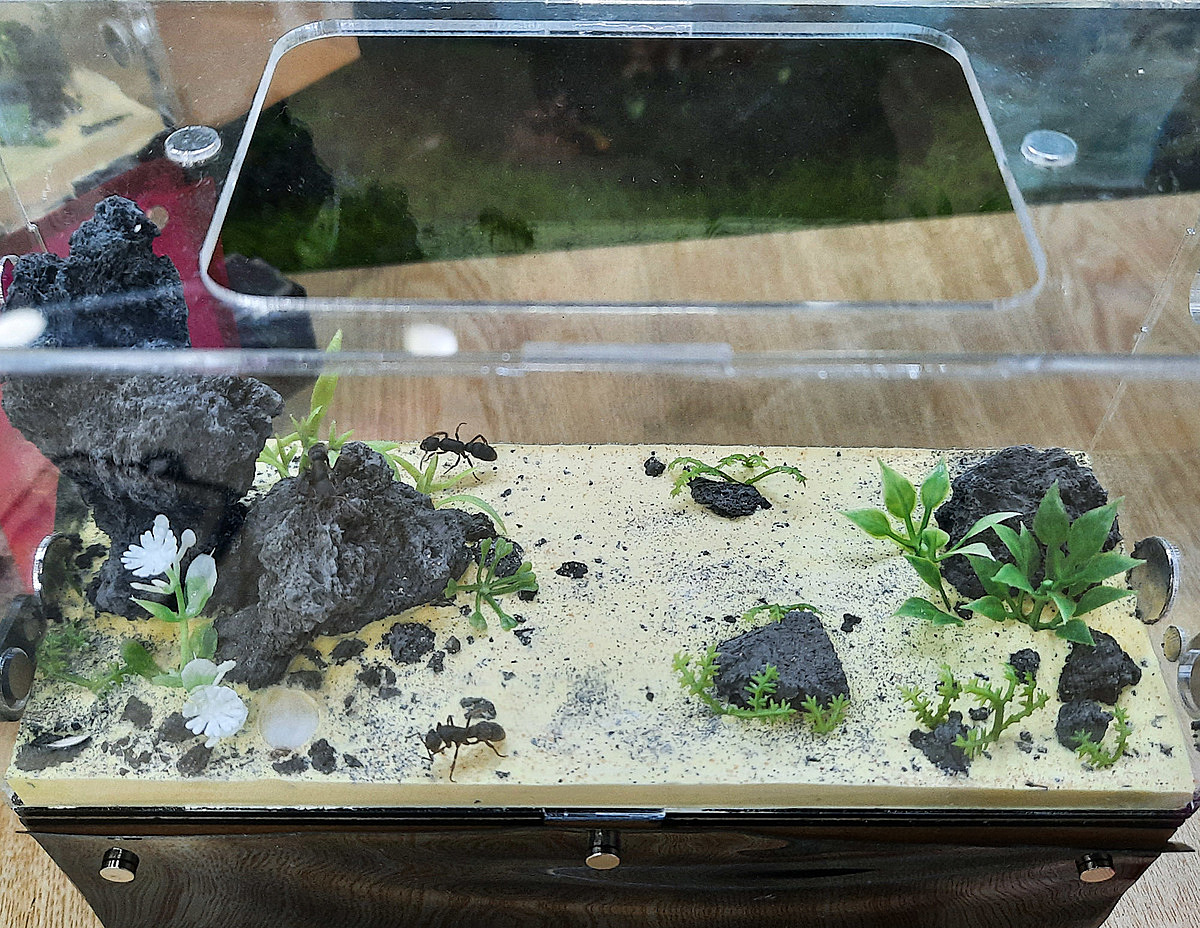 |
|
Nhut has created an ant hunting area with plastic grass, tree branches and stones.
“Ants have the habit of digging. If this space was made using natural materials such as soil and rocks, they will dig up the ground. When they find an appropriate environment, they will burrow into the ground, leaving the nest below. Then it will not be possible to see them and the aesthetic value of this hobby will be lost.
“Humidity is very important. If the nest is too hot, the eggs will not hatch.”
|
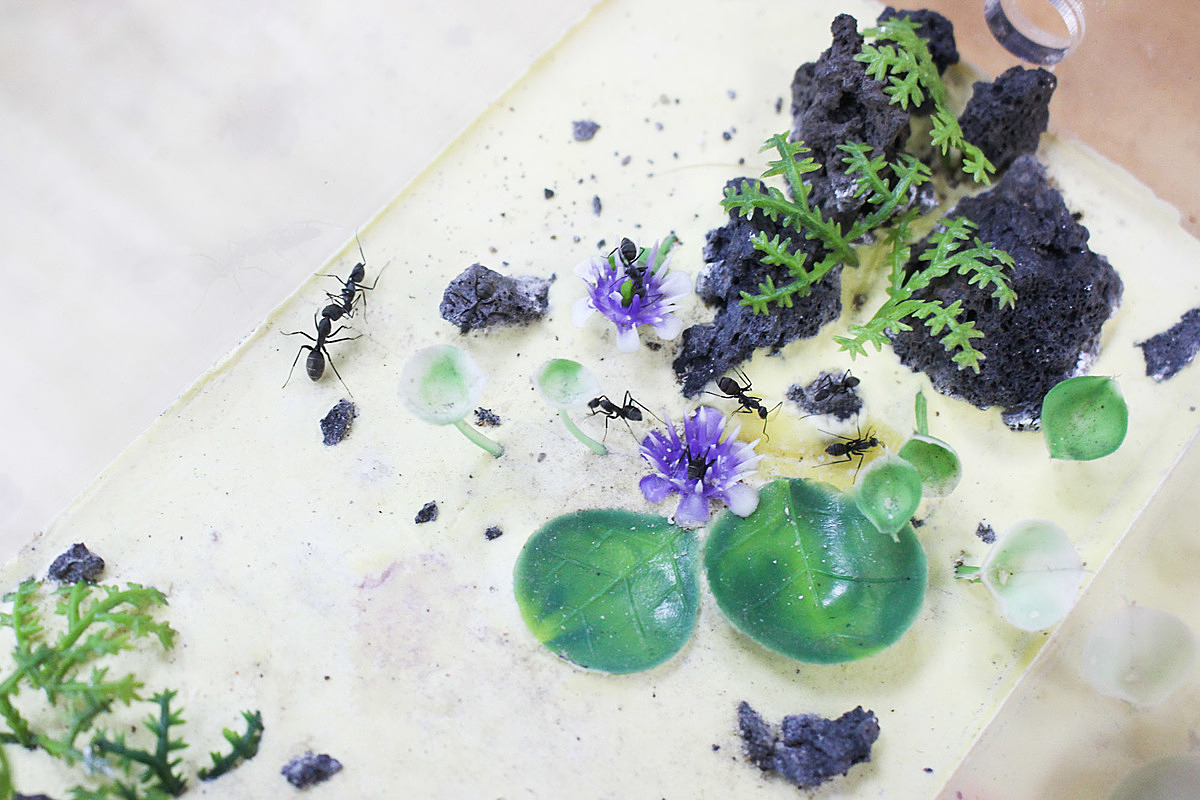 |
|
The rainy season is the ant breeding season. The queen and male ants will mate before looking for a suitable place to nest.
Nhut said he prefers to capture queen ants in order and establish a colony rather than getting a whole nest from the wild.
The picture above shows a camponotus auriventris colony that he has raised from his first queen ant. The colony has grown to around 100 ants after a year or so. He placed about 60 worker ants into the tank after the queen ant spawned. This species’ eggs hatch in about two months.
|
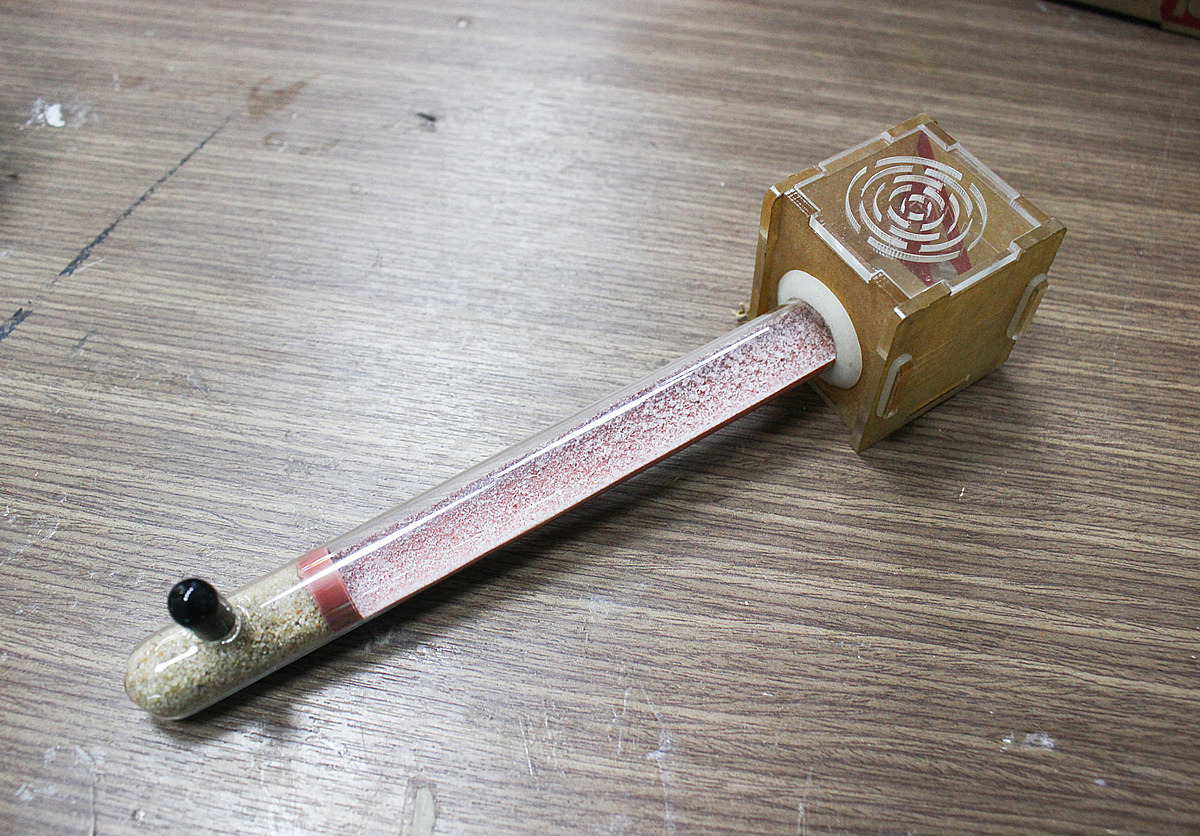 |
|
This picture shows a professional “Queen nursing tube,” which is used to feed the queen ant when she is captured for the first time.
The tube is divided into three sections. The square box is to store food for ants because some species do not go in search of food while laying eggs. The queen ant lives and lays eggs in the pink middle tube.
Nhut will make an ant tank when the queen ant gives birth to a few dozen children, depending on the species. The top is white, with a small tube on top for adding water and generating humidity.
|
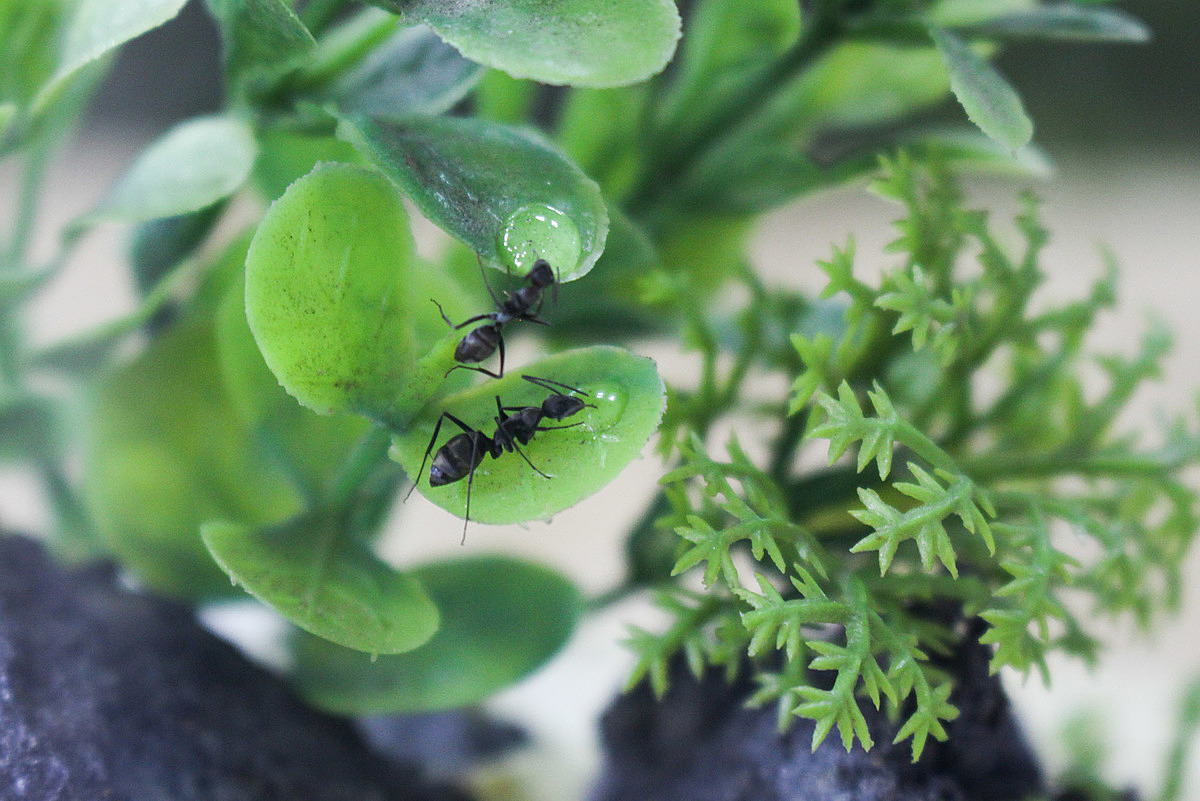 |
|
Nhut feeds the ants with sugar water, honey and insects to supplement protein and aid the queen ant’s reproduction. He also sprinkles sugar water on leaves and pistils to entice his pet ants to come and eat.
|
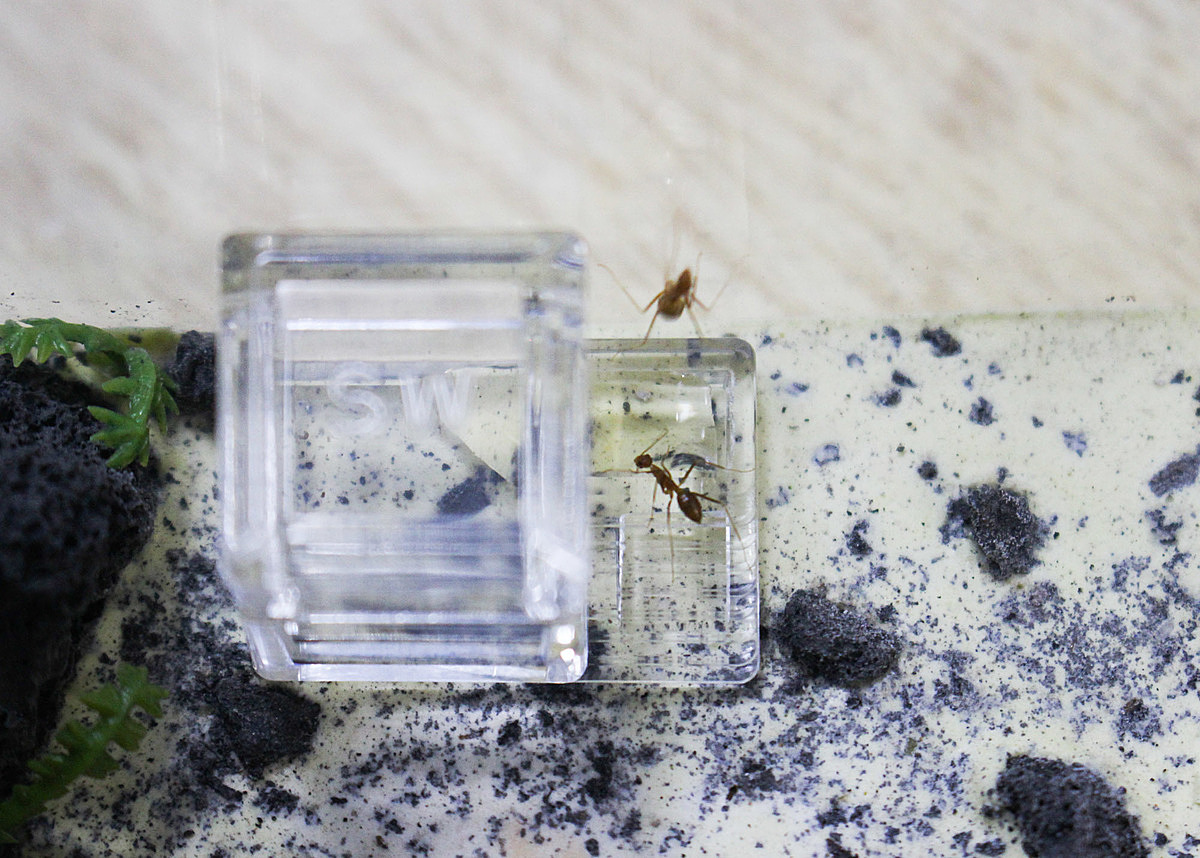 |
|
This is a sugar water dispenser for ants. Nhut one of his joys his joy in caring for ants is to watch how, when one of finds food, it runs away and gets others to join.
|
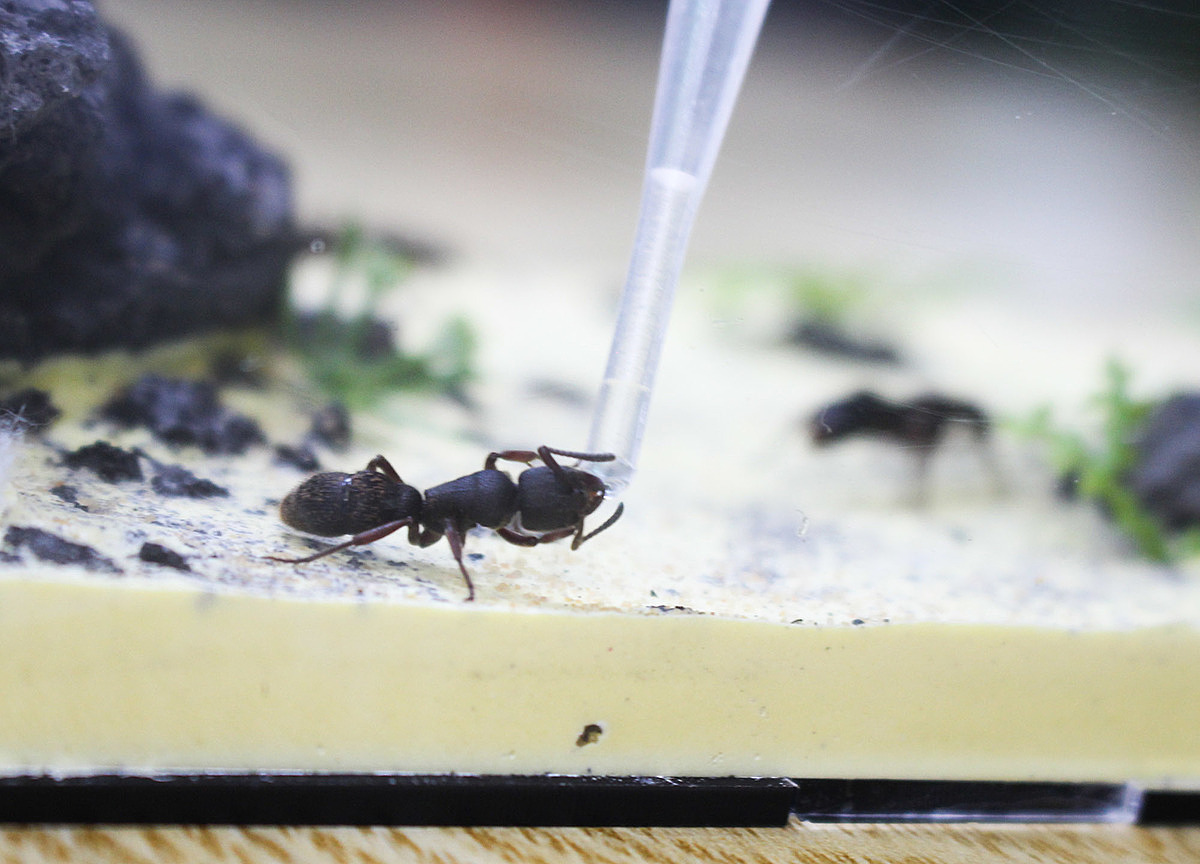 |
|
A Rufipes ant sucks sugar water. Because this is a species that cannot climb, it is quite simple to raise, Nhut said.
Catching ants when they escape the cage is one of the difficulties that ant owners face. “You must be very patient and gentle, or they will die,” Nhut explained.
|
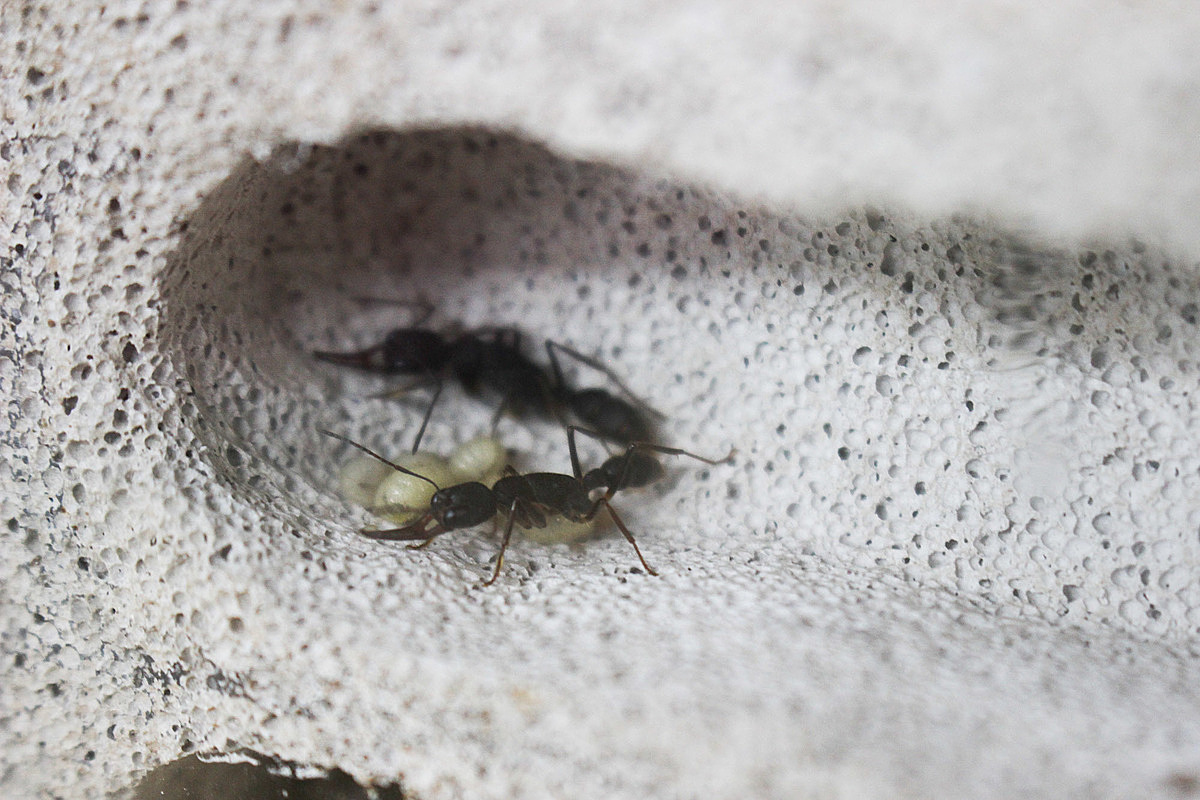 |
|
The harpegnathos venator is a species of ant that is popular among ant farmers because of its large size and “tough” appearance created by two claws. Because these ants are quite slow, have very sharp eyes and dislike light, Nhut must use a black curtain to cover the nest to keep them from becoming stressed out. Ants will eat their eggs when they are stressed, he said.
“I raised it out of curiosity and frequently turned over the cage to see what was going on. I have seen ants spawn and ate their eggs dozens of times. This is an ant’s behavior when they feel they are in danger,” he explained.
|
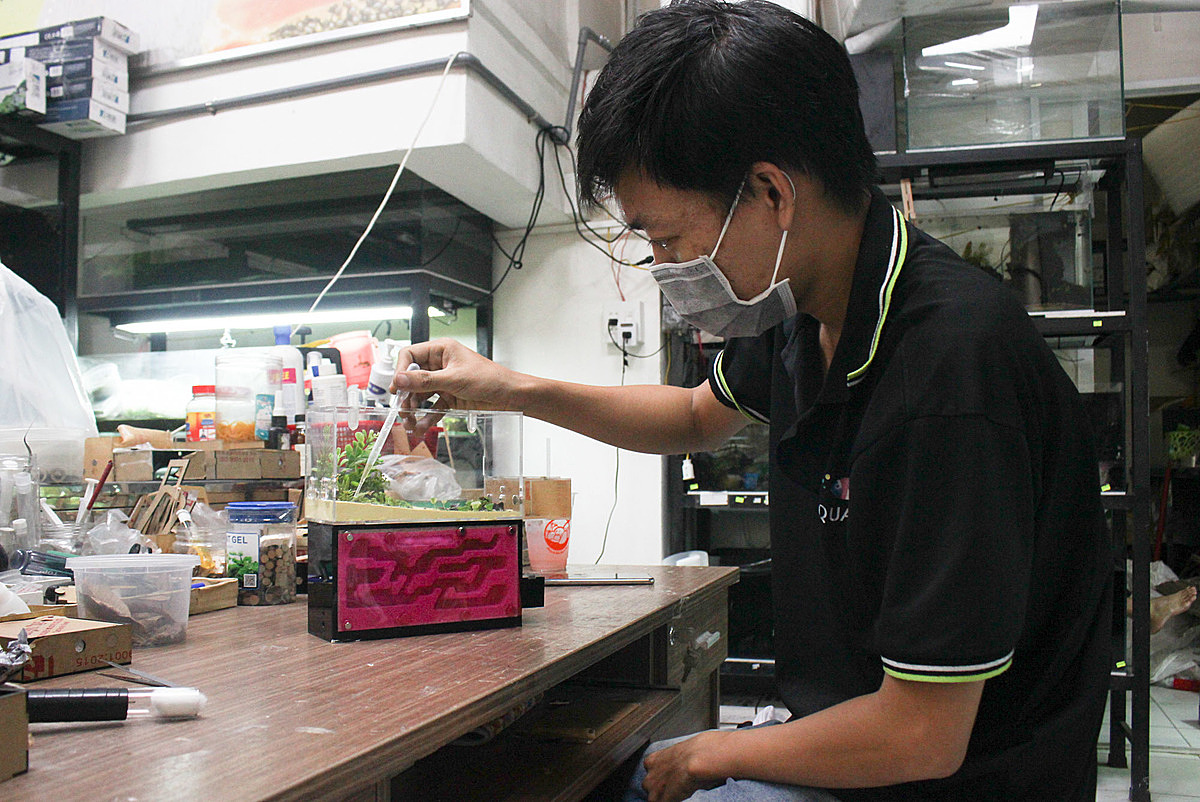 |
|
The tank’s sides are held together with magnets, and Nhut is working on a tank that can be connected by a small hole that ants can pass through in order to expand their habitat without having to switch to a larger tank.
After a year of figuring out how to make ant tanks and improving his skills, many people have started buying them from Nhut.
“I want the antkeeping community to have a high-quality tank product. Surprisingly, my passion allows me to earn more money. Despite the fact that I deal in a wide range of products, I am happy that I am able to sell those that are the result of my passion. This makes it meaningful.”
|
Read More :
-
Reduce Hair Loss with PURA D’OR Gold Label Shampoo
-
Castor Oil Has Made a “Huge” Difference With Hair and Brow Growth
-
Excessive hair loss in men: Signs of illness that cannot be subjective
-
Dịch Vụ SEO Website ở Los Angeles, CA: đưa trang web doanh nghiệp bạn lên top Google
-
Nails Salon Sierra Madre










 VnExpress News The News Gateway of Vietnam
VnExpress News The News Gateway of Vietnam





